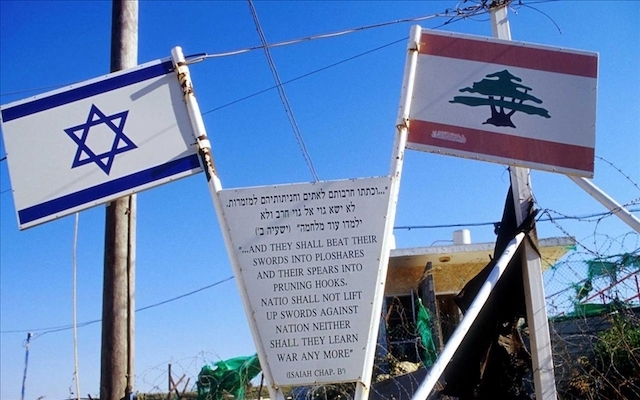Out of all of Israel’s direct and indirect neighbors in the Middle East, there is one whose history is quite different; so different that it begs the question of how on Earth has it not normalized relations with Israel yet. Lebanon, built on top of the ancient Kingdom of Phoenicia, with the ‘Paris of the Middle East’ as its capital, is one of the most culturally diverse nations in the entire region, perhaps even the world. However, due to decades of foreign, and often hostile political and militant interference, the charm of Lebanon has been taken hostage.
With Muslims, Christians, Druze, Sunni, and Shiites making up the country’s demographics, and its French colonial past, it sometimes appears as a prideful, yet elegant Middle Eastern utopia; Lebanese are often humorously mocked by other Arabs for their European and feminine-like mannerisms. Everything, literally everything in Lebanon sets it apart from the rest of the Muslim and Arab world. Even its topography with year-round lush greenery and snowy mountains has awarded Lebanon with one of its many nicknames, “The Switzerland of the Middle East.”
See, Shia of south #Lebanon are not obsessed with missiles, war, and destruction of #Israel. They too have bills to pay and families to feed. An ad for "al Andalos Chalet" in Lebanon's Blida, for $120 a night (top left pic). Hike for 3 miles southeast on trail (top right pic),… pic.twitter.com/xMi1VccTjP
— Hussain Abdul-Hussain (@hahussain) June 17, 2023
With the decolonization of Lebanon by the French in the 1940s, the tiny coastline country became extremely susceptible to influences coming from many different directions. The Syrian Ba’ath party under the influence of a Pan-Arab philosophy pretty much saw Lebanon as their own, while others like the Palestinian Liberation Organization and later the Islamic Republic of Iran recognized the huge potential in confronting the Zionist enemy directly from its northern border. All these foreign aspects to Lebanon, which gained momentum through the ongoing civil war of the late 1970s, resulted in Israel’s “Peace for the Galilee” operation and the 18-year military invasion of Southern Lebanon.
Meanwhile, between all these large-scale geopolitical viewpoints, the people of Lebanon struggled to keep their heritage of mutual respect toward the cultural diversity of their stunning nation intact. The feeling that ‘picking a side is a necessity’ has been enhanced through constant propaganda from all sides and the business-oriented mindset which enriched and united the lands for so many years has been crumbling ever since. From a country that was a favorite of many European vacationers and international merchants, Lebanon has turned into an active warzone and its leaders and activists have been stifled due to Iranian, Palestinian, and Syrian bribes as well as threats.
The one place in the Middle East where minorities are thriving
— FDD (@FDD) June 24, 2023
Those who accuse Israel of 'ethnic cleansing' should look elsewhere in the region – especially Lebanon: https://t.co/JlCnGpVySV
At this point, Hezbollah, a proxy that answers directly to Iran is the de-facto ruler of Lebanon, with the current puppet government having very little influence on the progression of any new policy. That being said, there is still hope of reviving the once-prosperous land; normalizing relations with their southern Israeli neighbors, who by chance would love nothing more than to end the confusing and pointless hostilities between the two. While it would take quite an effort from the ordinary citizens of Lebanon to fight off Hezbollah’s influence, Israel’s military power and the support of the entire West and most of the Arab League would provide a sufficient amount of strength to do so.
Kuwaiti Journalist Fajer Alsaeed After Being Denied Entry to Lebanon for Calling for Ties with Israel: Either Hizbullah Cannot Tolerate Criticism, Or I Am Having an Effect on People @AlsaeedFajer #Lebanon #Hizbullah #Kuwait pic.twitter.com/zb6iMlfNoF
— MEMRI (@MEMRIReports) June 20, 2023
Many scholars tend to claim that due to the Syrian and Iranian influence on Lebanese politics, normalization between Syria and Israel is more likely to happen first, thus resulting in Lebanon receiving ‘permission’ and tagging along. What this train of thought completely ignores is Israel’s personal interest, and unfortunately, currently, there is no substantial reason for Israel to invest heavily in peace with Syria as long as Bashar Assad is ruling the land.
The people of @Israel and #Lebanon should be living side by side in peace, they are not enemies.
— The Judean (@TheJudean) June 18, 2023
Meanwhile, Hezbollah continues with this:https://t.co/giUNS4ONuT
It is worth noting that many Israelis recall a time when they were welcome in Beirut, and spent weekends on the beaches of Tripoli, visiting the ruins of civilizations long past. The similarities between the Lebanese and Israelis, culturally and historically are more closely aligned than that of any other nation in the region, peace between the two nations once the influence of Iran has been removed would be far stronger than the peace that exists between Israel and other Arab states.
The Israeli government, even in its current form, would see eradicating Hezbollah and creating a fiscal and strategic alliance with the Lebanese as a great and valuable opportunity; it would simply take the voiced opinion and willingness of the Lebanese people to get it done. Even visually, the thought of a continuous friendly coastline from the Gaza border all the way north past Beirut and Tripoli up to the Syrian border would put a liberating smile on most Israelis' who have no issues with Lebanon as an independent state and people. The glorious days of Lebanon are far from over, and its proud citizens could, should, and will be the key to true liberation.


